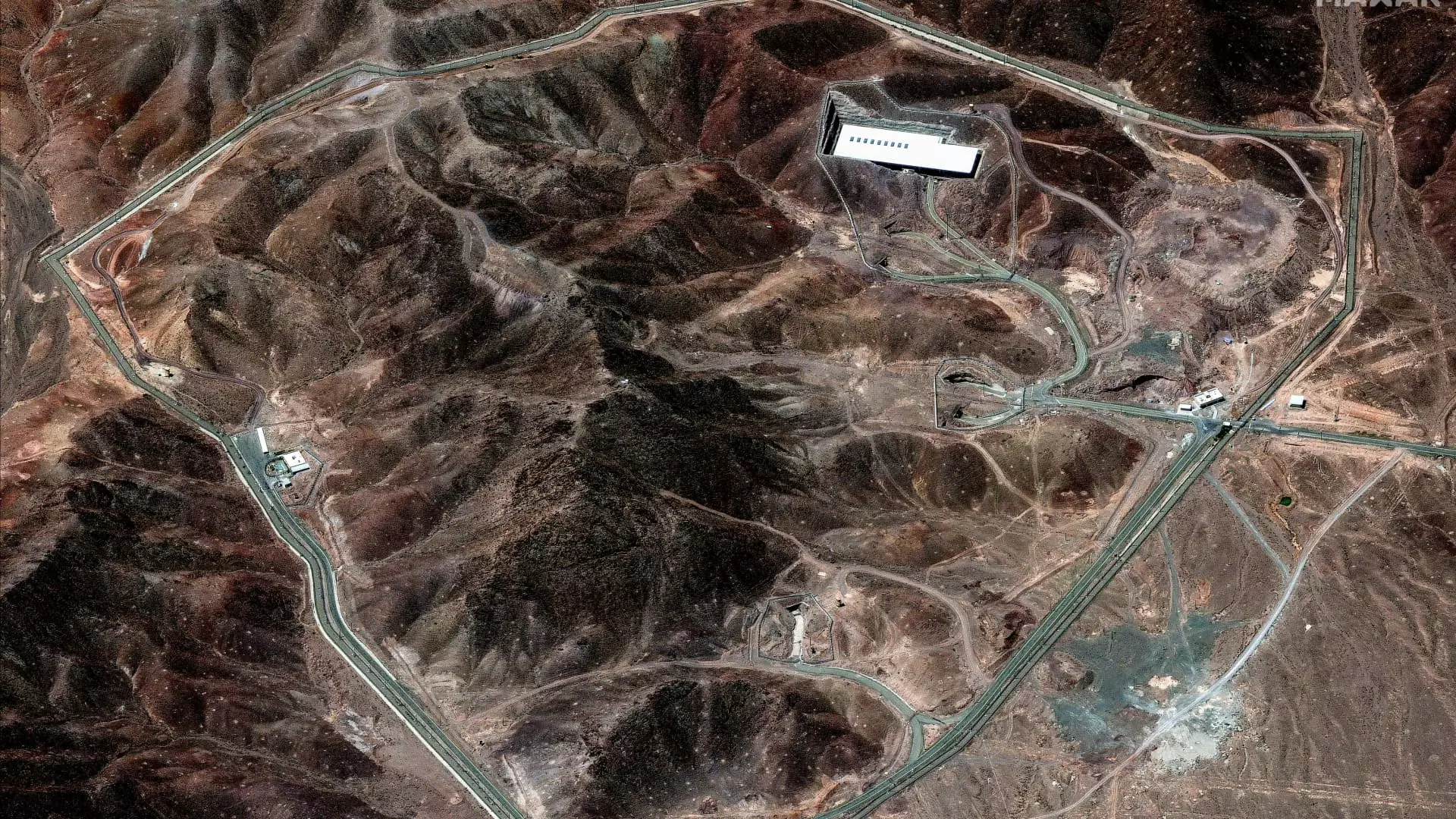The recent military actions taken against Iran’s nuclear facilities have ignited an inferno of debate across the political spectrum. It’s one thing for a nation to show its muscle, but the dynamics surrounding the U.S.’s aggressive posture toward Iran are complex and fraught with consequences. The strikes specifically targeted key nuclear sites situated deep in fortified locations, demonstrating not just power but the culmination of a long-standing tension that teeters on the edge of an explosive reality.
President Donald Trump’s insistence that the damage inflicted ought to be deemed “obliteration” is more than mere bravado; it serves as a rhetorical maneuver designed to rally support amid criticism and skepticism. His assertion, bolstered by satellite imagery, marks a brash conclusion to what many strategists are calling an unprecedented assault, one that underscores the U.S.’s unwavering commitment to curtailing Iran’s nuclear ambitions. Yet, the response from military and diplomatic circles indicates a more nuanced understanding of the situation, rather than a straightforward annihilation of capabilities.
The Ambiguity of Damage Assessment
The ambiguity surrounding the actual damage inflicted on Iran’s nuclear infrastructure reveals the limitations of immediate military evaluations. General Dan Caine, the U.S. Chairman of the Joint Chiefs of Staff, provided a sobering reminder that while the damage was severe, definitive conclusions about Iran’s nuke capabilities might yet be elusive. His insights evoke skepticism about the assertion of “obliteration.” In the fog of war, it becomes imperative to distinguish between what is proclaimed and what is indisputably understood.
The inconclusive nature of the battle damage assessments, which entail considerable time and intelligence analysis, reflects the complexities of modern warfare. Given the top-secret operations in action, the public often grapples with a stark imbalance between sensational headlines and obscured realities. Confirming the extent of destruction remains a task for intelligence agencies armed with advanced reconnaissance methods, including drones and satellites, but nothing replaces ground-level confirmation.
A Game of Misguided Certainty?
Meanwhile, Secretary of Defense Pete Hegseth’s assurance about the precision of U.S. strikes operates on a razor-thin line between military brilliance and potential overconfidence. There’s a palpable sense that the United States could be inviting consequences it hasn’t fully anticipated. The pursuit of an aggressive approach towards Iran seems fueled by a determination to restrain perceived threats, but the flipside of this strategy could lead to escalated tensions or unintended fallout.
As Iranian officials scramble to downplay the strikes, the narrative they craft may distract from the larger uncertainty over Iran’s nuclear status. Media reports suggest that significant portions of Iran’s enriched uranium may have been relocated ahead of the U.S.’s offensive, but the sheer opacity of nuclear capabilities means that post-strike calculations may not bear fruit. The illusion of control can often lead to catastrophic missteps in international relations.
The Role of Global Governance
In the wake of these military actions, one cannot overlook the role of international institutions like the United Nations. The comments from Rafael Grossi, the head of the UN’s nuclear watchdog, reflect the complicated morass of global governance when faced with national security threats. His cautious stance on the assessment of damage reflects a broader concern regarding the unregulated expansion of nuclear weapons capabilities and highlights the failures of diplomatic resolutions prior to military escalations.
The broader implications of this military engagement are far-reaching, not just between the involved nations but within global markets and alliances. A resurgent Iran, particularly if it believes its sovereignty has been violated, could accelerate its nuclear program, potentially leading to a volatile arms race in a region that is historically unstable.
In essence, the use of force invites a complex web of strategic calculations that often go unaccounted for by those celebrating military prowess. Evoking the language of obliteration may serve short-term political goals, but its long-term implications for stability could be immeasurable.


Leave a Reply